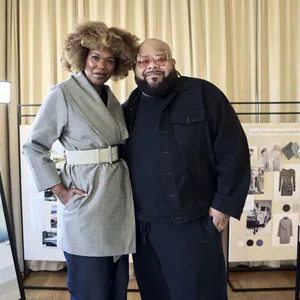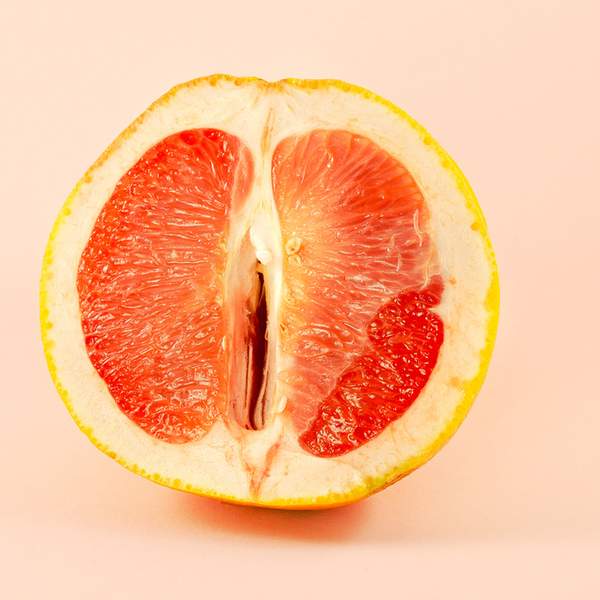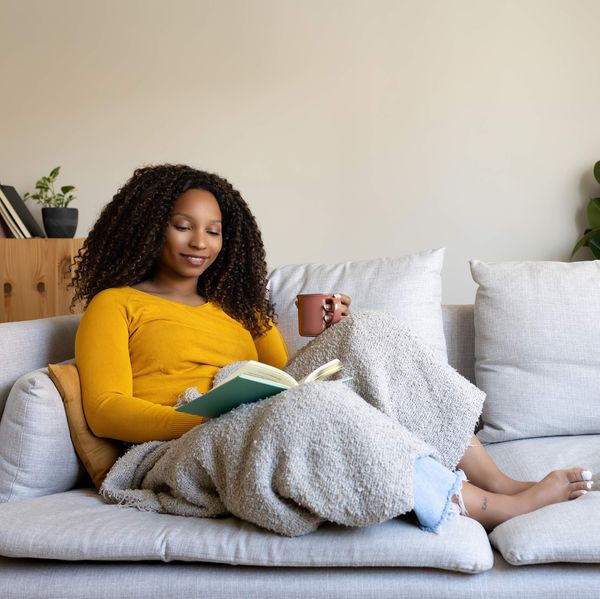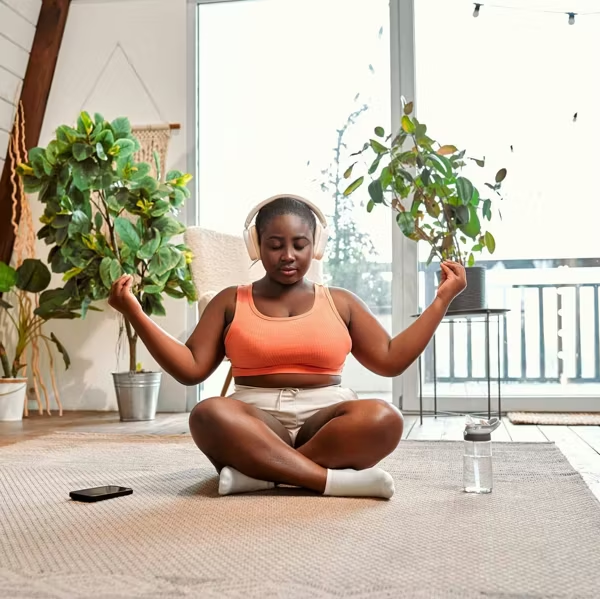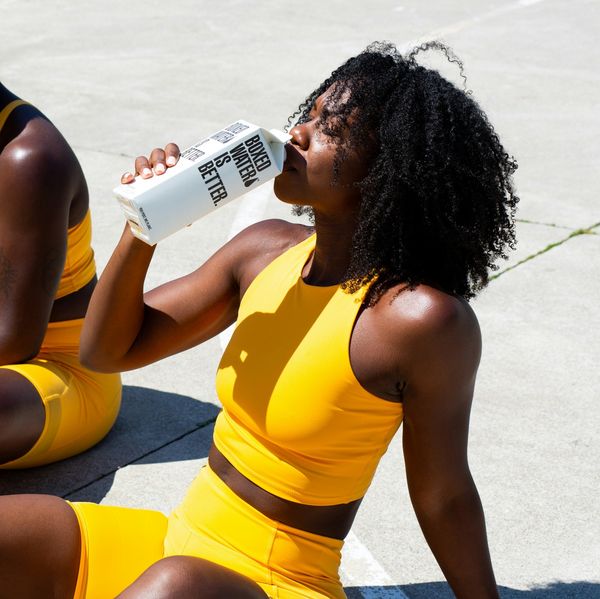Something that I enjoy about writing for women's platforms is it puts you in the position of discovering all kinds of things that you might not ever discover otherwise; even about yourself. Take vaginal mapping, for example. A quick show of hands (via letting us know in the comment section) if you're familiar with what that is. Shoot, bonus points if you've ever done any vaginal mapping before.
If you've heard of it and your guess is that vaginal mapping is masturbation—actually, it's not. If you're wondering if it's a vaginal self-exam—you're getting warmer but not exactly. However, if you give me roughly 5-7 minutes of your time, I'll share with you what vaginal mapping is all about and why it's such a beneficial thing for all of us to do, at least a couple of times every year.
Here’s the Vaginal Mapping Breakdown
Here's the interesting thing about vaginal mapping, right out the gate. While masturbation is about stimulating your genitalia for the sole purpose of sexual stimulation and vaginal self-exams are about checking out the external part of your vagina (your vulva), along with the opening of it and your anus, in order to see if there are any abnormalities (basically it's a breast exam for down below), vaginal mapping is more like a therapeutic massage for your vaginal area. Really, your entire pelvic region.
In fact, there are many health and sex experts who say that, by partaking in this particular act, it can actually help to bring forth a certain level of healing and release if you've experienced some past sexual trauma or if you've got some sort of anxiety as it relates to that particular part of your body.
As far as the technique itself, as you're actually massaging your vagina via deep breathing and light stroking, it's important to feel for areas that might feel numb, tense, or even somewhat painful. In a way, think of it as reflexology for your vaginal area. Vaginal mapping is all about caressing both the outside and inside of your vagina—again, not so you can climax but so you can feel more at ease and at peace with yourself.
Some of the proven benefits of vaginal mapping include:
- It can help to loosen up tight pelvic floor muscles that can sometimes make sex uncomfortable.
- It can help to break up any congestion or mild adhesions that could be binding up the connective tissue around your pelvic floor muscles.
- It can also help to speed up the healing process of a mild pelvic or vaginal injury (like one that may occur during sex).
- It can help to free up emotional tension, stress or pent-up energy that is oftentimes "trapped" within your pelvis.
- It can make you feel more comfortable with your body overall.
If any of these benefits have further piqued your curiosity and you're wondering how you can become a vaginal mapping master, I've got some tips for you that can help you to achieve your goal:
How to Do Vaginal Mapping for Yourself
Again, because vaginal mapping is all about massaging your vaginal area (in fact, some people actually call it a "yoni massage"), that's the mindset you need to be in while doing this particular exercise. Get quiet. Light some soy-scented candles. Get into an area of your home where you feel fully comfortable with totally disrobing. Try and avoid any distractions (like loud music or your television). For this to be effective, you've got to truly hone in and focus solely on your pelvic area. That said, here are the steps.
1. Get to know your pelvis.
Before even getting into the massage part, let's do a quickie anatomy class, focusing solely on your pelvic region. Where you typically put your hands on your hips, that is known as your ilium. The two bones at the front of your pelvis make up your pubic bone. The bones that you literally sit on are your sitz bones (the technical word is ischium). The triangular-shaped bone at the base of your spine is known as your sacrum. And, the base of your sacrum, where your tailbone is, is called your coccyx. All of this is relevant because knowing the different parts of your pelvis will make doing the next things a lot easier.
2. Lie down on your back with your knees bent and your legs open. Then begin massaging your stomach and inner thighs.
Before getting to your actual vagina, it's a good relaxation technique to first use an oil like coconut, grapeseed or olive (all of them are high in antioxidants and are non-irritating to the inside of your vagina) to gently rub your stomach (which will also play a role in vaginal mapping) as well as your inner thighs and the crevices that connect your legs to your vulva (the outer part of your vagina). Once you feel more relaxed, it's time for the next step.
3. Start vaginal mapping by inserting a lubricated index finger into your vagina.
With the hand that you use more (meaning if you're left-handed, use that hand or if you're right-handed, use that hand), put some oil on its index finger and then gently insert that finger into your vaginal opening. Then place your other hand on top of your stomach, so that you can feel what you're doing, both inside as well as out. Next, press the inner part of your finger towards your pubic bone; if you pay close enough attention, you might just feel your urethra. Be intentional about looking for signs of tension or discomfort. If so, see if gently massaging those areas helps. Spend a good 5-7 minutes in this area. Then, while breathing slowly and deeply, move your finger towards the back part of your pelvis where your sacrum is and repeat the same process.
Once you're done with that area, massage the internal part of the left side of your pubic bone, then the right, all the while keeping your other hand on your stomach because the added external pressure will make it easier for you to detect if there is any "tightness" within. Also, pay close attention to whether or not you can feel your muscles relax as you're massaging the inside of your vagina; if you are doing everything properly, you should. This entire practice should take between 30-60 minutes. Just remember not to rush. This is all about self-exploration, being gentle with your pelvic area, and mastering how to deep breathe and massage simultaneously.
4. Consider investing in a pelvic wand as a massaging tool.
When you're first starting out with vaginal mapping, your finger is honestly enough; you want to make sure you know what is comfortable for you when it comes to where you go and how deeply. But once you get used to doing this type of massage, something that you might want to invest in is a pelvic wand. It's an easier way to reach the deeper parts of your pelvic floor muscles so that if you have any tender areas that may be resulting in mild pelvic pain, they can be massaged easier and the tension can be released quicker. If you'd like to look more into this particular purchase, click here.
5. Journal about the vaginal mapping healing experience, if you wish.
Something that I've written about before is the benefits that come with sex journaling (check out "The Art Of Sex Journaling (And Why You Should Do It)"). While a lot of it consists of writing down thoughts, memories, patterns, and even sexual desires, if you want to reserve a section for vaginal mapping, that certainly wouldn't hurt; especially the first couple of times that you do this kind of massaging. Write down how the exercise made you feel, the areas where you may notice are more tender, numb or firm than others and if any particular memories came to mind while you did it. Again, a big benefit that comes with vaginal mapping is it helps you to release any emotional stress or trauma that you might've been carrying in your pelvic area that you didn't even think about.
Then you're done. While the first time that you vaginal map, "awkward" might be the best way to describe how it felt to do it, again, if you make it a part of your self-care routine (even if it's only seasonally or bi-annually), you'll start to feel more comfortable with doing it because it will calm you, help you to know your vaginal area so much better and, if you journal through it, it can provide you with some epiphanies about your self-esteem, sexuality and emotional processing when it comes to both.
I know this isn't something that comes up often, but it is a hidden gem that is well worth considering. After all, the best maps lead to the most profound treasures, right? My sentiments exactly.
Join our xoTribe, an exclusive community dedicated to YOU and your stories and all things xoNecole. Be a part of a growing community of women from all over the world who come together to uplift, inspire, and inform each other on all things related to the glow up.
Featured image by Shutterstock


